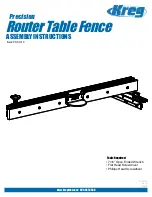
111
•
Code
—Protocol sub-type, which is 0x0001, indicating the loop detection protocol.
•
Version
—Protocol version, which is always 0x0000.
•
Length
—Length of the frame. The value includes the inner header, but excludes the Ethernet
header.
•
Reserved
—This field is reserved.
Frames for loop detection are encapsulated as TLV triplets.
Table 9 TLVs supported by loop detection
TLV
Description
Remarks
End of PDU
End of a PDU.
Optional.
Device ID
Bridge MAC address of the sending device.
Required.
Port ID
ID of the PDU sending port.
Optional.
Port Name
Name of the PDU sending port.
Optional.
System Name
Device name.
Optional.
Chassis ID
Chassis ID of the sending port.
Optional.
Slot ID
Slot ID of the sending port.
Optional.
Sub Slot ID
Sub-slot ID of the sending port.
Optional.
Loop detection interval
Loop detection is a continuous process as the network changes. Loop detection frames are sent at a
specified interval (called a loop detection interval) to determine whether loops occur on ports and
whether loops are removed.
Loop protection actions
When the switch detects a loop on a port, it generates a log but performs no action on the port by
default. You can configure the switch to take one of the following actions:
•
Block
—Disables the port from learning MAC addresses and blocks inbound traffic to the port.
•
No-learning
—Disables the port from learning MAC addresses.
•
Shutdown
—Shuts down the port to disable it from receiving and sending any frames.
Port status auto recovery
When the device configured with the block or no-learning loop action detects a loop on a port, it
performs the action and waits three loop detection intervals. If the device does not receive a loop
detection frame within three loop detection intervals, it performs the following tasks:
•
Automatically sets the port to the forwarding state.
•
Notifies the user of the event.
When the device configured with the shutdown action detects a loop on a port, the following events
occur:
1.
The device automatically shuts down the port.
















































